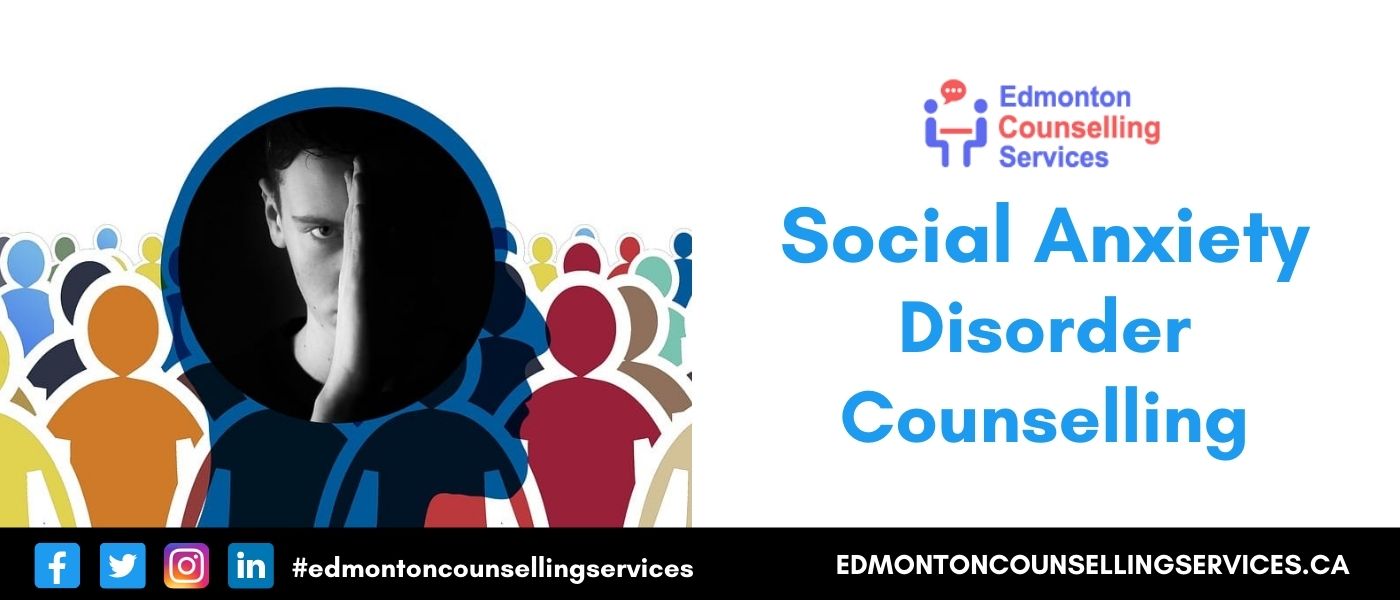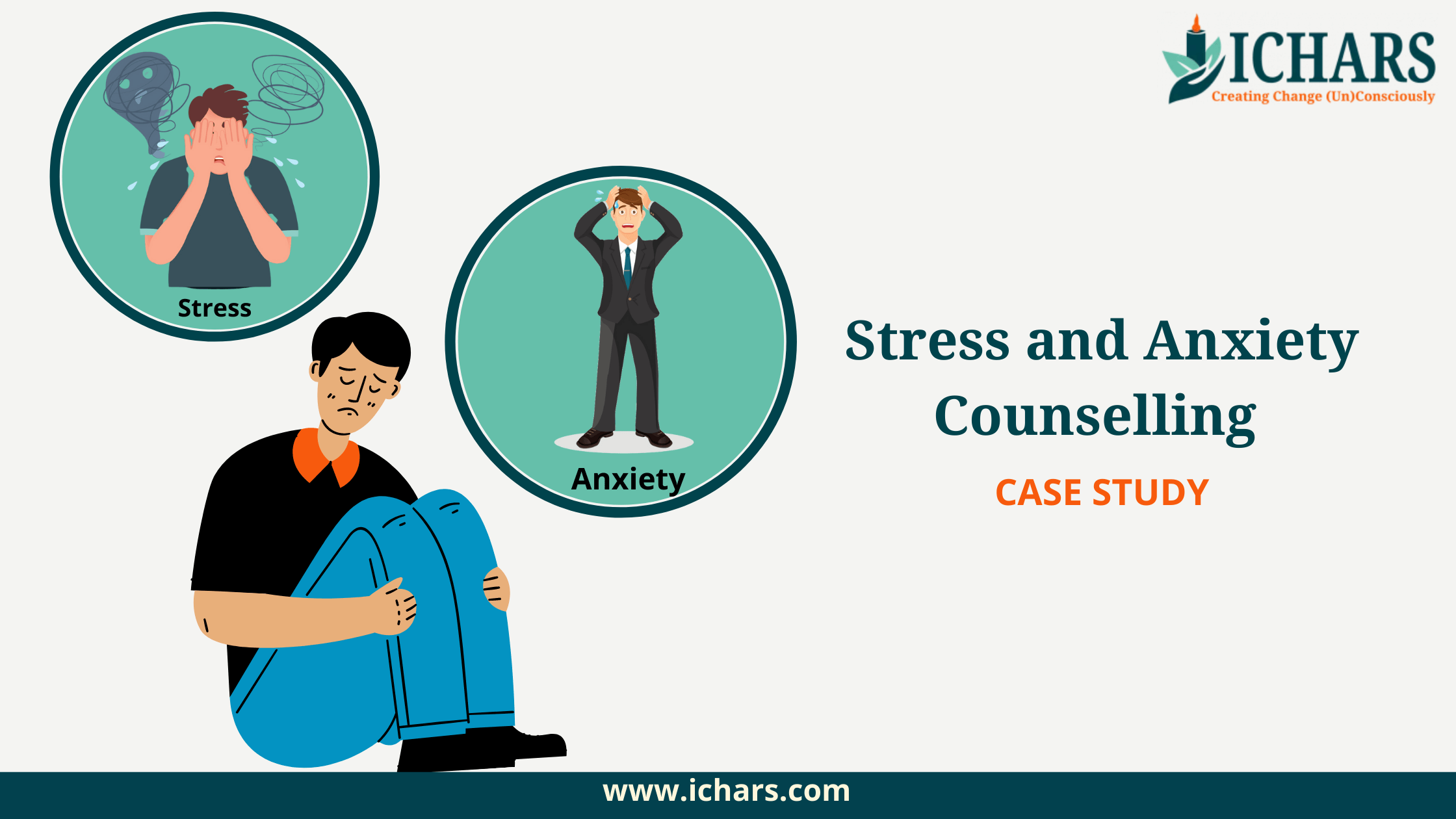Start your journey with counselling for anxiety disorder guided by professionals
Start your journey with counselling for anxiety disorder guided by professionals
Blog Article
Discovering Various Strategies in Coaching for Anxiety Disorder for Long Lasting Modification
When dealing with anxiety conditions, it's vital to explore a range of counseling approaches. Each method offers unique understandings and devices to aid you handle your signs properly. You could locate that incorporating methods can produce the best results. Comprehending the subtleties of these techniques is crucial to promoting long lasting change. What if the best combination could release a brand-new level of psychological wellness for you?
Understanding Anxiety Conditions: A Short Summary
Anxiety problems, which impact countless people worldwide, can significantly affect day-to-day live. You could experience overwhelming sensations of worry or worry that appear uncontrollable. These sensations can cause physical signs and symptoms like a racing heart, sweating, or also lightheadedness. Common kinds of anxiousness conditions consist of generalized anxiousness condition, panic condition, and social anxiousness disorder. Each has one-of-a-kind indications, however they all share a propensity to disrupt your regular and relationships.Understanding the origin of your stress and anxiety is vital. It could come from genes, brain chemistry, or life experiences. Identifying your triggers can assist you handle your responses better. It's important to bear in mind that you're not alone in this battle. Many people encounter similar difficulties, and looking for assistance is a strong action toward feeling much better. By finding out about anxiousness problems, you're already on the path to understanding and managing your problem extra successfully.
Cognitive-Behavioral Treatment: Testing Unfavorable Thought Patterns
In Cognitive-Behavioral Treatment, you'll begin by identifying the adverse idea causes that contribute to your anxiousness. You'll work on replacing them with even more favorable choices as soon as you identify these ideas. Together, you'll build effective coping techniques to assist handle your anxiousness in day-to-day situations.
Identifying Unfavorable Idea Triggers

When you experience moments of distress, acknowledging the details triggers behind your adverse ideas can be important in taking care of stress and anxiety. Start by paying attention to situations that prompt sensations of worry or concern. Is it a jampacked space, a future due date, or a conversation with particular people? Write these instances in a journal. This will certainly assist you identify patterns in your reasoning. Also, notice physical sensations that accompany your unfavorable ideas, like an auto racing heart or tightness in your upper body. By determining these triggers, you acquire insight into what's sustaining your stress and anxiety. Understanding these links is the very first step in testing those thoughts and ultimately restoring control over your psychological reactions.
Replacing Thoughts With Positives
Challenging unfavorable idea patterns is a crucial action in changing your attitude and decreasing anxiousness. You may frequently locate yourself caught in cycles of insecurity or catastrophic thinking. Rather than letting these thoughts dictate your feelings, technique replacing them with practical options or favorable affirmations. When you think, "I can not manage this," change it to, "I can manage challenges one step at a time." This straightforward change can significantly affect your emotion. Routinely recognizing and responding to these adverse ideas aids develop a much healthier interior discussion. Keep in mind, it requires time and effort, but regularly practicing this technique can lead to long-term adjustment, equipping you to encounter anxiousness with renewed confidence and resilience.
Building Coping Methods Together
Changing negative ideas is only the start of taking care of stress and anxiety effectively. To develop long lasting adjustment, you require to build coping approaches that encourage you. Cognitive-Behavioral Treatment (CBT) helps you determine and challenge those purposeless idea patterns. With each other, you and your therapist can discover how these thoughts impact your sensations and behaviors.Start by developing sensible techniques, like journaling or mindfulness exercises, that enable you to confront anxiety head-on. When you encounter your fears gradually, you'll learn to react in a different way.

Mindfulness and Acceptance-Based Approaches: Cultivating Present-Moment Understanding
As you navigate the complexities of anxiety, integrating mindfulness and acceptance-based techniques can considerably enhance your ability to cultivate present-moment recognition. By concentrating on the here and now, you'll discover that you can observe your ideas and sensations without judgment (Counseling services for anxiety). This method helps you acknowledge your anxiety without really feeling overwhelmed by it.Engaging in mindfulness workouts, such as deep breathing, body scans, or assisted reflections, permits you to ground on your own in your existing experience. Acceptance-based approaches encourage you to welcome your emotions as opposed to deal with against them. When you accept your sensations, they shed their power over you.Incorporating these techniques into your day-to-day regimen can transform exactly how you respond to stress and anxiety. You'll create strength and learn to navigate stressful circumstances with higher ease. Inevitably, growing present-moment understanding lays the foundation for long lasting change, encouraging you to lead an extra fulfilling life
Direct Exposure Therapy: Facing Anxieties Slowly
Exposure therapy aids you face your worries in a progressive means, making it less frustrating. You'll learn techniques to face anxiety-provoking circumstances detailed, while likewise developing coping strategies to manage your reactions. This strategy encourages you to take control and reduce anxiousness over time.
Steady Exposure Methods

When dealing with anxiousness, progressively confronting your concerns can be a powerful method to regain control. This method, understood as gradual exposure, entails gradually exposing yourself to the scenarios or objects that cause your anxiety. Start with less daunting scenarios and progressively function your method approximately even more check here challenging ones. If you're terrified of public speaking, you may begin by speaking in front of a mirror, after that proceed to sharing ideas with a friend, and at some point address a small team. Each step aids desensitize you to the worry, building your confidence gradually. Keep in mind, it's important to pace on your own and commemorate small victories as you move through this procedure, strengthening your capability to take care of stress and anxiety successfully.
Building Coping Techniques
Building efficient coping strategies is vital for taking care of anxiety, especially as you face your concerns slowly - Counseling services for anxiety. One effective approach is direct exposure therapy, where you begin by facing your anxieties in a regulated manner. Begin with much less daunting scenarios and slowly function your method approximately even more tough circumstances. This progressive exposure assists desensitize you to anxiety triggers, making them much less overwhelming.Incorporate leisure strategies, such as deep breathing or mindfulness, to calm your mind throughout exposure. Track your development, commemorating little victories along the method to increase your confidence. Bear in mind, it's all right to take your time; the goal isn't perfection yet stable enhancement. By building these approaches, you'll empower yourself to navigate stress and anxiety and accept life a lot more totally
Psychodynamic Therapy: Discovering Source of Stress And Anxiety
Psychodynamic therapy discovers the subconscious mind, exposing the source of your stress and anxiety. By examining your ideas, sensations, and previous experiences, this method helps you discover underlying conflicts and unresolved concerns that may add to your existing anxiousness. You'll work with a therapist to investigate childhood experiences, relationships, and emotional patterns that shape your responses today.As you get insight into these much deeper layers of your psyche, you'll begin to recognize just how previous occasions influence your existing behavior. This understanding can lead to catharsis, permitting you to process emotions you might have suppressed.Through the restorative relationship, you can additionally identify protection mechanisms that might have created with time, providing a more clear path to alter. Ultimately, psychodynamic treatment equips you with the devices to resolve your stress and anxiety at its core, advertising enduring change in your psychological well-being.
Holistic and integrative Methods: Incorporating Techniques for Greater Effectiveness
Incorporating various restorative methods can boost your journey toward handling anxiousness better. By integrating components from cognitive-behavioral therapy, mindfulness methods, and alternative techniques, you can create a tailored strategy that addresses your distinct demands. You might use cognitive-behavioral techniques to challenge negative idea patterns while incorporating mindfulness exercises to ground on your own in the existing moment.Additionally, discovering alternative methods such as yoga exercise or meditation can advertise relaxation and decrease anxiousness signs and symptoms. This mix enables you to create better self-awareness and resilience.Experimenting with these diverse approaches can assist you find what resonates most with you. Remember, it has to do with finding a synergy that works, instead of adhering to a solitary method. This integrative technique not only provides immediate alleviation however likewise fosters long-term abilities for taking care of anxiousness, equipping you to recover control over your life.
The Role of Support Solutions: Structure Strength With Connection
While it could appear that managing anxiousness is a solitary journey, having a solid support group can play a crucial function in your strength. Surrounding yourself with compassionate buddies, family, or support system develops a risk-free space where you can openly share your feelings and experiences. You advise yourself that you're not alone in this struggle.These partnerships use inspiration and can provide useful coping methods that have actually functioned for others when you link with others. It's also a chance to obtain perspective; buddies can aid you see situations in a different way, decreasing sensations of isolation.Moreover, psychological support promotes a feeling of belonging, which can greatly relieve anxiety symptoms. By leaning on your assistance system, you can construct strength and tackle difficulties better. Bear in mind, connecting for assistance suggests strength, and it can make all the difference in your journey toward handling anxiousness.
Regularly Asked Inquiries
What Are the Common Signs of Stress And Anxiety Conditions?
You could experience restlessness, fatigue, difficulty concentrating, irritation, muscle tension, and sleep disturbances. Physical signs can include fast heart beat, sweating, and trembling. Recognizing these signs early can assist you seek suitable assistance and therapy.
How Much Time Does Treatment Generally Last for Stress And Anxiety Conditions?
Treatment for anxiousness problems typically lasts anywhere from a few weeks to several months. It actually depends on your private demands, development, and the methods your therapist makes use of to help you handle your anxiousness effectively.
Can Medication Be Made Use Of Along With Therapy for Stress and anxiety?
Yes, medication can absolutely be utilized together with therapy for anxiety. Incorporating both strategies frequently enhances therapy efficiency, helping you handle symptoms while discovering underlying problems through therapy (Counseling services for anxiety). Constantly consult your doctor for individualized recommendations
Are There Self-Help Approaches for Handling Anxiousness?
Yes, there are a number of self-help techniques for taking care of stress and anxiety. You can practice mindfulness, take part in normal exercise, keep a well balanced diet, develop a routine, and use deep breathing methods to help in reducing stress and anxiety symptoms successfully.
Exactly how Do I Know if I Required Professional Aid for Anxiety?

Report this page